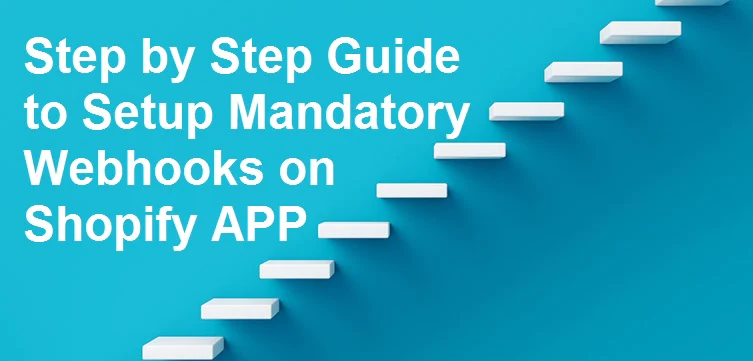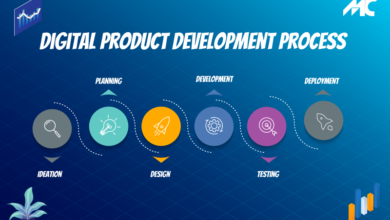Personal Finance Lab Login: Budget Game | Stock Market Game
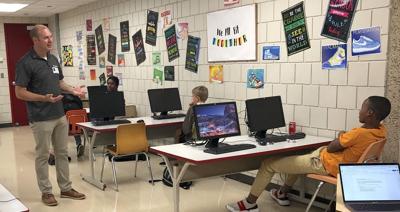
A personal finance lab refers to a platform or piece of software that provides tools and resources for individuals to manage their finances effectively. It typically offers features such as budgeting, expense tracking, goal setting, investment analysis, retirement planning, and financial education.
A personal finance lab may include interactive dashboards and visualization tools to help users gain insights into their spending habits, savings patterns, and investment performance. It may also provide recommendations and strategies to improve financial well-being, such as optimizing expenses, reducing debt, and increasing savings.
Additionally, a personal finance lab may offer educational content, including articles, videos, and tutorials, to help users enhance their financial literacy and make informed decisions about money management.
Personal Finance Lab
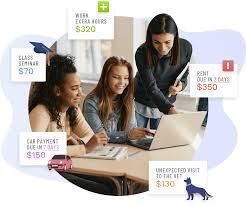
Enhancing financial management skills and wealth-building abilities not only positively impacts an individual’s future but also benefits their families and communities. PersonalfinanceLab strongly advocates for enjoyable education that fosters student motivation to learn.
Financial Literacy Games
Experiential learning is highly effective! Through PersonalfinanceLab.com and Financial Literacy Games, students actively participate in a variety of engaging activities. Their platform teaches essential money-management skills and much more. It incorporates a budget game, a stock market game, and integrated lessons that cover a wide range of topics. Students gain practical experience in using debit and credit cards, managing various accounts (checking, savings, and credit cards), transferring funds, paying bills, and building emergency funds. Additionally, this platform includes comprehensive lessons that reinforce numerous financial literacy skills.
How Personal Finance Lab is best used as a stock market simulation
The Personal Finance Lab is an excellent tool for simulating the stock market. The stock market game is user-friendly, providing an authentic experience. Teachers can easily set up and manage multiple simulations, allowing students to participate in multiple games. Additionally, finance teachers can utilize the platform’s articles, calculators, and quizzes as supplementary resources to their existing curriculum. These resources are accessible without requiring a login. While the stock market game is suitable for advanced middle school students, the curriculum content is written at a high school or beginner collegiate level.
How does the personal finance lab work?
-
- Developing and overseeing a monthly budget and establishing an emergency fund:
- Learning the process of creating and maintaining a monthly budget.
- Understanding the importance of setting aside funds for emergencies.
- Implementing strategies to save and gradually building an emergency fund.
- Responsible usage of debit and credit cards to improve credit scores:
- Acquiring knowledge about using debit and credit cards wisely.
- Understanding the factors that influence credit scores.
- Employing responsible credit card usage practices to build a positive credit history.
- Efficient management of paychecks, fund transfers, and timely bill payments:
- Learning effective techniques for managing income and paychecks.
- Understanding various methods for transferring funds securely.
- Developing skills to ensure bills are paid promptly and avoid late fees.
- Building wealth and investing in long-term financial instruments:
- Gaining knowledge about wealth-building strategies.
- Exploring investment options such as stocks, bonds, and ETFs.
- Understanding the principles of long-term investing and risk management.
- Recognizing the consequences of choices and preparing for unexpected events:
- Understanding the connection between choices and their financial outcomes.
- Developing an awareness of the importance of being prepared for unexpected events.
- Developing and overseeing a monthly budget and establishing an emergency fund:
Personal finance lab for students
PersonalFinanceLab.com offers a comprehensive platform that includes the Budget Game, Stock Market Game, and integrated curriculum to educate teenagers about financial literacy. This program focuses on teaching essential skills in personal budgeting as well as providing knowledge in business and economics. It aims to prepare kids for personal independence by imparting valuable lessons in finances and budgeting.
By using an administrative account provided by PersonalFinanceLab.com, you were able to register your high school boys as students and assign them games and lessons. Following a tutorial video, you gained access to an instructor dashboard where you could track and monitor their progress on the assigned tasks.
The Budget Game: {personal finance lab}
The game immerses students in the role of managing a weekly income and balancing various financial obligations. The objective is to accumulate quality-of-life points, improve credit scores, and achieve saving goals. When setting up the assignment for the game, you chose the default scenario, where the boys started as college students with part-time jobs.
At the beginning of the game, students are presented with lifestyle choices that determine their expenses. For instance, they can choose between living alone or having roommates, which prompts them to consider the financial benefits of sharing expenses. Other choices include selecting the level of cell service and the quality of grocery options. Opting for cheaper food may save money, but it can impact their quality of life.
Students receive a weekly paycheck from their job, which they can deposit into their bank account. They have the flexibility to make bank transfers to meet their savings goals while also covering bills and expenses. When making payments, they have the option to pay with either debit or credit. Using credit helps build their credit score, but it also results in a credit card bill.
The game introduces unexpected expenses that students must handle and make decisions about. Some events, such as car repairs or medical bills, require immediate payment. Other situations require students to make choices, such as whether to spend money on outings with friends and whether to use credit or debit for expenses. These choices impact their account balances, quality of life, and credit scores.
Popup questions appear in the game approximately twice a month, aiming to enhance financial awareness. Students are presented with questions related to various financial topics, and they can read a short lesson to help them find the answer. Understanding simple facts like the due date for credit card payments, is emphasized. Correct answers to these questions result in a financial reward. The questions progressively cover topics such as medical insurance, student loans, and more.
Stock Market Game: {personal finance lab}
In this immersive game, students have the opportunity to engage in realistic stock trading. They can buy and sell stocks, research various companies, and make informed investment decisions. Throughout the game, students can build a diverse portfolio of stocks, bonds, ETFs, and mutual funds. The prices of these financial instruments are based on real-time data, providing a realistic market experience for the students.
Budgeting Game and Stock Market game: {Personal finance lab}
The Budgeting Game offers interactive scenarios where students experience real-life situations, such as obtaining a job, managing bills, and learning budgeting skills. It provides a virtual year-long journey, giving students a glimpse into life after school. The game is designed for individual play and typically takes around 20 minutes per “month” to complete.
In the Stock Market game, students can engage in buying and selling “stocks” while gaining knowledge about the stock market. They have the opportunity to research different companies and make informed decisions about their stock choices. As a parent, you will allocate a specific amount of money for them to use within the game.
Personal Finance Lab Pricing

Stock Game Only
- Pricing begins at $10 per student.
- The package includes access to a comprehensive curriculum library.
- Teachers are provided with various features and resources.
- Detailed reports are available for tracking student progress.
- Bulk discounts are offered for purchases of 50 or more student licenses.
Budget Game Only
- The cost per student starts at $10.
- The package includes a complete curriculum library, along with other features.
- Teachers have access to various resources and tools.
- Detailed reports are provided to track student performance.
- Discounts are available for bulk purchases of 50 or more student licenses.
Stock + Budget Game
- The comprehensive platform is offered at a starting price of $15 per student.
- It provides access to a full-curriculum library, ensuring a comprehensive educational experience.
- Teachers are equipped with various resources and tools to enhance their teaching.
- Detailed reports are available to track student progress and performance.
- Bulk discounts are available for purchases of 50 or more student licenses, making it cost-effective for larger groups.
Financial literacy games for kids
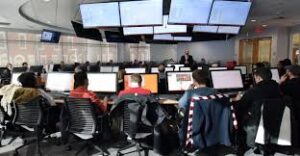
Personal Finance Lab
Financial literacy games for kids are interactive and educational tools designed to teach them essential money management skills in a fun and engaging way. These games aim to improve their understanding of topics such as budgeting, saving, spending wisely, investing, and making financial decisions. They often incorporate elements of decision-making, problem-solving, and critical thinking to simulate real-life financial scenarios. Some popular financial literacy games for kids include:
- Money Metropolis: This game allows kids to navigate a virtual city and make financial decisions, such as earning and managing money, saving, and investing.
- Peter Pig’s Money Counter: Designed for younger kids, this game teaches basic money skills like identifying coins, counting money, and making changes.
- The Stock Market Game: Kids learn about investing by participating in a virtual stock market, buying and selling stocks, and tracking their portfolio’s performance.
- ThriveTime for Teens: This game focuses on building financial literacy skills and entrepreneurial thinking. Players run their own virtual businesses and learn about budgeting, saving, investing, and making strategic decisions.
- Financial Football: Developed by Visa and the NFL, this game combines sports and financial literacy. Players answer financial questions to advance down the field and score touchdowns.
- Farm Blitz: This game introduces kids to the concept of supply and demand by managing a virtual farm and making decisions to maximize profits.
- Lemonade Stand: In this classic game, kids run their lemonade stand, learning about pricing, expenses, profit, and supply and demand.
My personal finance lab
“Personal Finance Lab” is an online platform that offers a range of financial literacy games and resources for students of all ages. The platform aims to provide an interactive and engaging learning experience to teach essential personal finance skills. It includes various tools and features to help students understand topics such as budgeting, saving, investing, managing credit, and making informed financial decisions.
Some key features of the Personal Finance Lab may include:
- Budgeting Game: A game that allows students to manage a virtual budget, make financial decisions, and learn about income, expenses, and saving goals.
- Stock Market Game: A simulated stock market game where students can buy and sell stocks, track their portfolio performance, and learn about investing.
- Lesson Plans and Resources: The Personal Finance Lab provides a library of lesson plans, activities, and resources to supplement financial literacy education in the classroom or at home.
- Assessments and Progress Tracking: The platform may include assessments to test students’ understanding of personal finance concepts. Teachers or parents can track students’ progress and performance.
- Realistic Simulations: The Personal Finance Lab may offer realistic simulations of financial scenarios, such as managing a bank account, paying bills, and making financial choices.
- Customization and Differentiation: The platform may allow educators to customize assignments and activities based on students’ needs and learning levels. It may also provide differentiated resources for various grade levels or learning abilities.
Personal Finance Lab Login: Best Budget Game $10
See More:
- Digital Transformation in Business: Trend| Future| Benefits
- What is Business Process Transformation?
- Business Planning Process and Types of Business Strategy
- Best Financial Digital Transformation Services: Trend | Future
- What is a consumer finance account and Its Types?
- Is Finance a Hard Major: 5 BEST POINTERS
- What is the Role of AI in the Digital Transformation of Education?
- Personal Finance Lab: Best Budget Game and Stock Market Game


